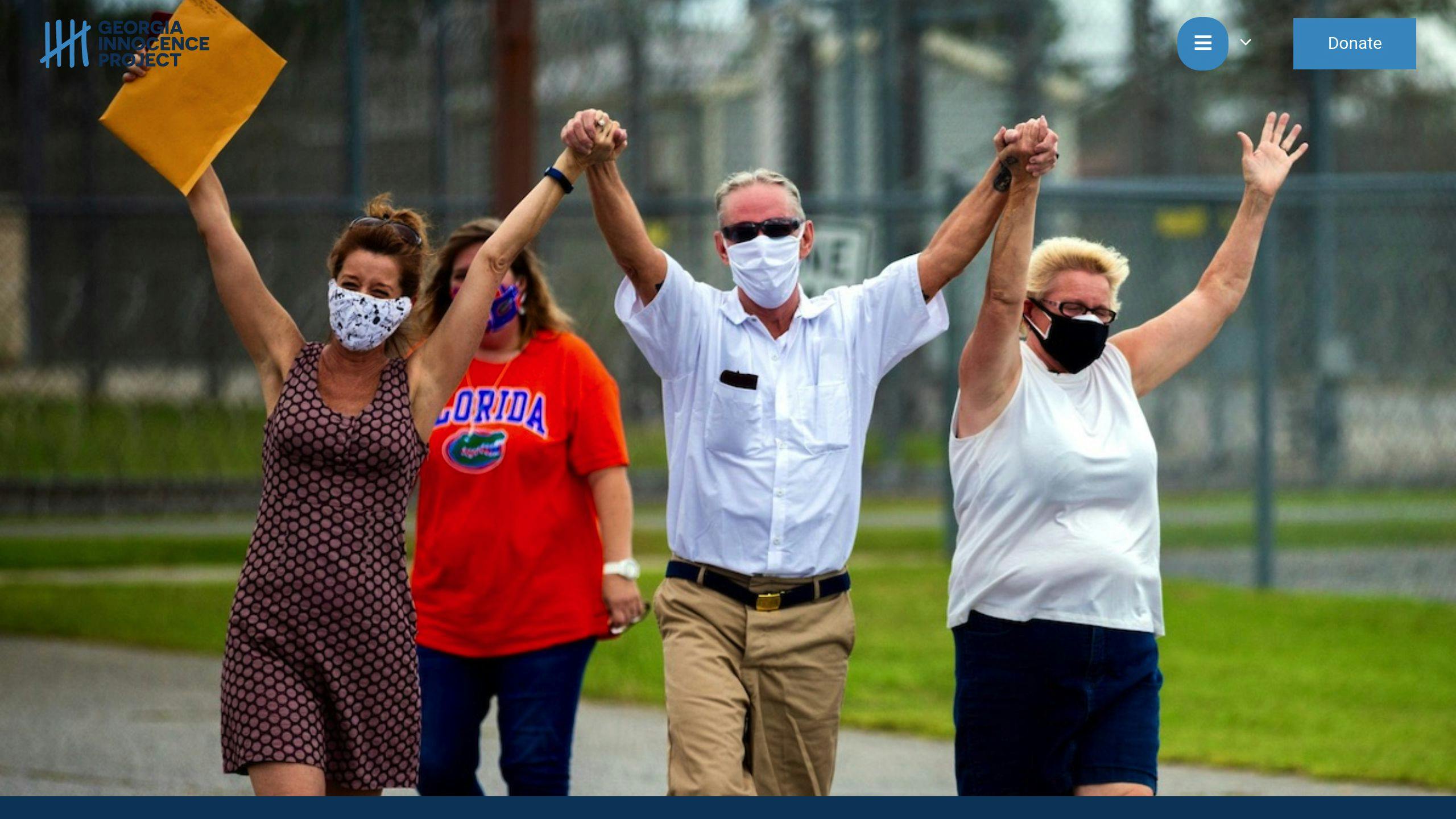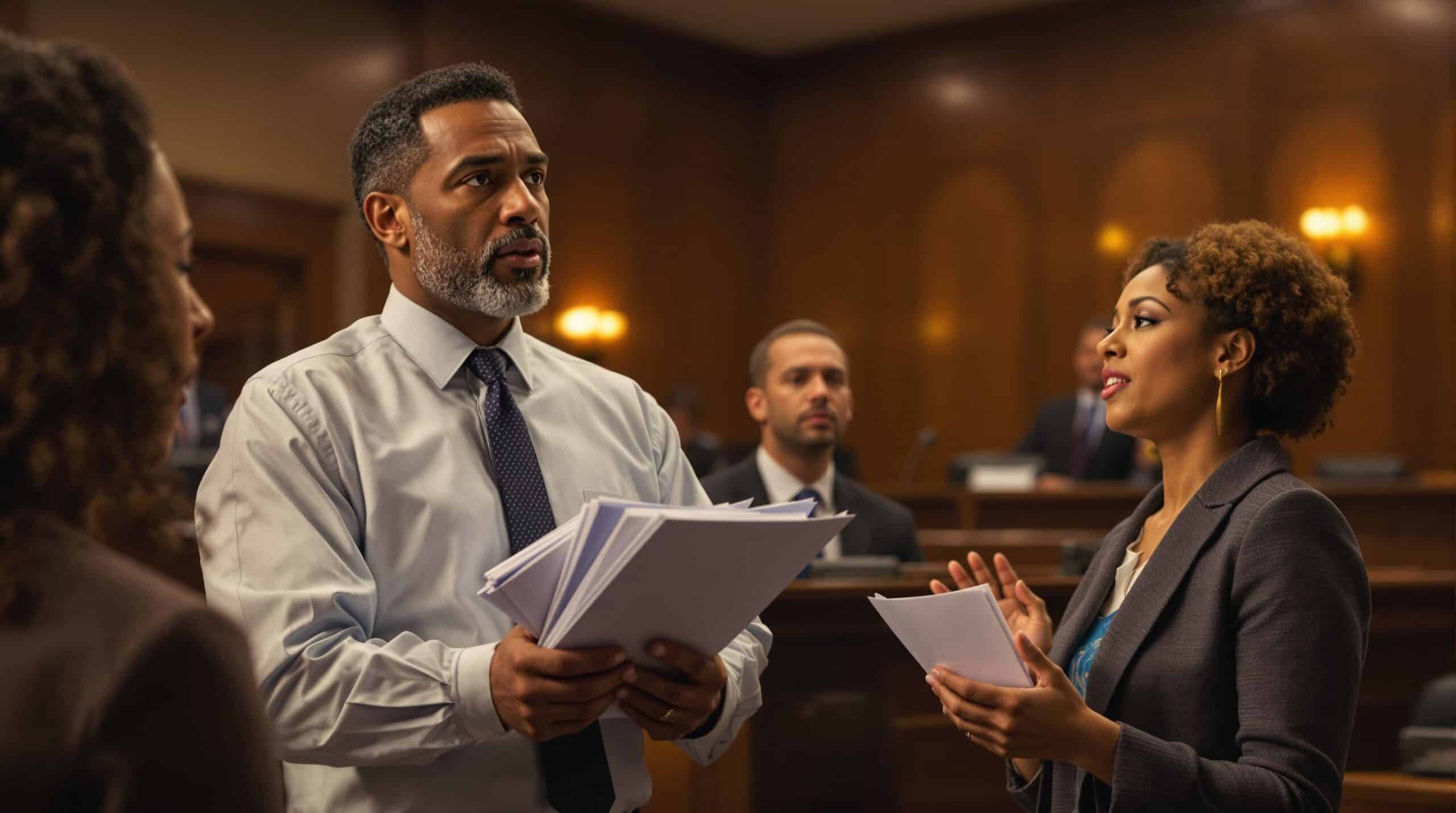Wrongful convictions devastate lives, erode trust in the justice system, and leave real offenders free. In Georgia, 47 people have been exonerated since 1989, with exonerees collectively serving hundreds of years behind bars. The state has paid $7.9 million to 10 exonerees since 1991, highlighting both the human and financial costs.
Key Causes:
- Eyewitness Errors: Misidentification contributed to all 8 DNA-based exonerations in Georgia.
- Prosecutorial Misconduct: Withholding evidence or presenting false information.
- Inadequate Legal Defense: Underfunded public defenders lead to rushed investigations and weak cases.
Solutions and Reforms:
- House Bill 1354: Proposes fair compensation for exonerees.
- Eyewitness Reforms: Georgia leads 13 states in improving identification procedures.
- Advocacy Efforts: Organizations like the Georgia Innocence Project (GIP) have secured 5 exonerations in the last 15 months, freeing individuals who served a combined 150 years.
The Path Forward:
- Strengthen forensic practices and evidence handling.
- Record interrogations to prevent false confessions.
- Increase funding for public defenders to ensure fair trials.
Georgia’s justice system is making progress, but systemic reforms are crucial to prevent future wrongful convictions and restore public confidence.
Where It All Began: The Founding of Georgia Innocence Project

Causes of Wrongful Convictions
Wrongful convictions in Georgia often result from a combination of systemic failures that create devastating outcomes. Understanding these causes is key to preventing future mistakes and improving the criminal justice system.
Eyewitness Errors and False Confessions
Eyewitness misidentification is one of the leading causes of wrongful convictions in Georgia. In fact, all eight DNA exonerations in the state involved cases of misidentification [4]. Stress, racial bias, and poor conditions can significantly affect the accuracy of witness testimonies. To address this, Georgia has introduced reforms aimed at improving identification procedures.
"Eyewitness identification is a powerful and valuable investigative method, but we need to be sure that we are using the most scientifically advanced practices." – Frank V. Rotondo [4]
While eyewitness mistakes are often unintentional, other failures – like prosecutorial misconduct – can be more deliberate.
Prosecutorial Misconduct and Coerced Confessions
Prosecutorial misconduct is another major contributor to wrongful convictions. This includes withholding evidence that could prove innocence, presenting false evidence, or making inflammatory statements during trials. These actions become even more damaging when paired with aggressive interrogation tactics that pressure suspects into giving false confessions [2].
Even when prosecutors follow ethical guidelines, failures in defense representation can still lead to unjust outcomes.
Inadequate Legal Representation
The quality of a defense can be the deciding factor between freedom and wrongful imprisonment. In Georgia, public defender offices often lack funding, leading to missed evidence, weak investigations, and rushed plea deals. This leaves many defendants without a fair shot at justice.
The Georgia Innocence Project has shed light on the consequences of underfunded defense systems. Their work has secured five recent exonerations, freeing individuals who collectively served 150 years behind bars. These cases highlight the urgent need for proper legal advocacy [3].
Systemic failures like these often have a greater impact on marginalized communities, further deepening the cycle of injustice in Georgia’s criminal justice system.
sbb-itb-7858f51
Case Studies: The Impact of Wrongful Convictions
Exoneration After Long Prison Terms
Kerry Robinson’s exoneration after spending 18 years in prison underscores the devastating consequences of unreliable forensic evidence and false testimony – problems that have repeatedly plagued Georgia’s justice system [1]. Similarly, the Georgia Five, who collectively served 150 years behind bars before being exonerated, demonstrate the severe human and financial costs of wrongful convictions. Despite these grave injustices, Georgia has compensated exonerees an average of less than $800,000 each since 1991 – an amount that falls far short of addressing the years lost and lives disrupted [1].
"The number of wrongful convictions in a state has also made a difference, where you’re able to say, ‘Look, there is a problem here, a relatively large problem.’ And in the state of Georgia, we just haven’t been able to get to scale like that." – Michael Owens, political scientist at Emory University [1]
As Owens points out, Georgia has yet to fully acknowledge the extent of its wrongful conviction problem, making it harder to address the systemic issues at play.
Systemic Problems Highlighted by Cases
Chatham County has become a focal point for wrongful convictions in Georgia. This troubling trend has led to a partnership between the District Attorney’s Conviction Integrity Unit (CIU) and the Georgia Innocence Project [3]. Their joint efforts aim to uncover why this county has seen so many miscarriages of justice.
Since 2002, the Georgia Innocence Project has been inundated with assistance requests, suggesting that the exonerations already achieved represent only a small portion of the wrongful convictions in the state [3].
Several recurring issues have been identified in these cases:
| Systemic Issue | Impact on Cases |
|---|---|
| Flawed Forensics | Reliance on outdated methods |
| False Testimony | Inaccurate statements in trials |
| Evidence Handling | Mishandling or loss of evidence |
| Post-Conviction Barriers | Limited resources for appeals |
In response, the Georgia legislature has introduced House Bill 1354, which proposes a structured compensation process for exonerees [1]. These cases reveal deep-rooted problems such as flawed forensic practices, prosecutorial misconduct, and inadequate legal defense. Addressing these issues will require meaningful reforms to prevent future injustices and restore trust in the justice system.
Solutions to Prevent Wrongful Convictions
Legislative Changes in Georgia
Georgia has taken steps to address wrongful convictions with new laws. One key reform is House Bill 1354, introduced by Rep. Scott Holcomb. This bill sets up a formal process to compensate individuals who have been wrongfully convicted. A Wrongful Compensation Review Panel determines recommended amounts, which are then reviewed by the Georgia Supreme Court’s chief justice to ensure fair outcomes [1].
"Georgia now leads 13 states in eyewitness identification reforms, addressing misidentification – a factor in all eight DNA-based exonerations", says Rebecca Brown [4].
Advocacy Groups’ Role
The Georgia Innocence Project (GIP) plays a major role in the fight against wrongful convictions. By working with Conviction Integrity Units (CIUs) in Fulton and Chatham counties, GIP has shown how collaboration can drive justice reform. Since 2002, they’ve handled over 7,900 requests for assistance, proving to be a key player in advocating for those wrongfully imprisoned.
Another important group, Georgia Prisoners’ Speak (GPS), highlights systemic issues within the prison system. They provide tools for citizens to contact government representatives and share stories from prisoners and their families. This transparency helps push for accountability and sheds light on injustices within the system.
While organizations like GIP focus on individual cases, broader legal and systemic reforms are necessary to address the root causes of wrongful convictions.
Suggested Legal and Policy Reforms
Improving Evidence Practices
- Require mandatory recordings of interrogations to avoid false confessions.
- Strengthen evidence disclosure rules to prevent misconduct by prosecutors.
- Standardize forensic testing methods to ensure reliability.
Structural Adjustments
- Increase funding for public defenders to reduce overwhelming caseloads.
- Eliminate trial penalties that pressure innocent individuals into pleading guilty.
- Use double-blind lineup procedures to reduce errors in witness identification.
Currently, the average compensation in Georgia for exonerees is $790,000, which doesn’t truly account for the lifelong impact of wrongful imprisonment [1]. These reforms are necessary to restore trust in Georgia’s justice system and to prevent future miscarriages of justice.
Conclusion: Advancing Justice and Accountability
Key Takeaways
Georgia’s track record with exonerations and compensation points to both progress and ongoing issues within the justice system. Misidentification is a major problem, contributing to 72% of DNA exonerations across the U.S. and all eight DNA-based exonerations in Georgia [4]. Efforts like Conviction Integrity Units in counties such as Chatham, alongside advocacy organizations, show a growing push for reform.
The recent successes of the Georgia Innocence Project shine a light on the deep impact of wrongful convictions and the potential to correct these injustices [3]. Their work exposes the flaws in the system while also offering a roadmap for change.
A Path Forward
While steps forward have been made, achieving justice requires action from both lawmakers and the public. House Bill 1354, which proposes a panel to review and recommend fair compensation for exonerees, is a promising move [1]. But broader reforms are essential to address systemic issues.
Georgia has joined 13 other states in adopting measures to reduce eyewitness misidentification – one of the leading causes of wrongful convictions. Supporting these reforms, along with addressing issues like prosecutorial misconduct and inadequate defense, is key to creating a fairer system.
The fight against wrongful convictions is ongoing. Citizens can make a difference by supporting advocacy groups, raising awareness through platforms like Georgia Prisoners’ Speak, and urging legislators to back meaningful reforms. Together, these efforts can help create a justice system that serves everyone fairly.
